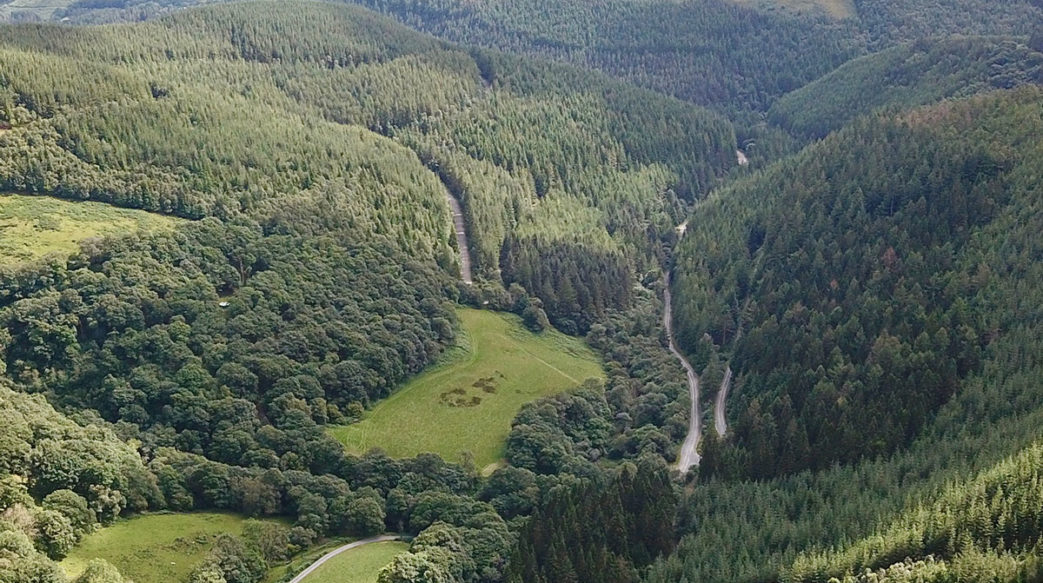Dear friends –
As summer gives way to autumn we have been enjoying the changing colours and moods of the forest as always.
As we all make our peace with what this year has been so far in our different ways, many of us are making conscious choices that give us more resilience, freedom and joy under any circumstances – and that often starts with earth connection.
Here at Eco Retreats we are excited about expanding our offering of bespoke meditation, yoga and reiki sessions and also beginning to offer a range of bushcraft options next year, starting with foraging walks in the forest from October (see below).
Many of our guests have already met Ben, who’s been working with us since the summer, and we have really been enjoying absorbing his foraging wisdom! Below we share his blog on the magical properties of the stinging nettle – you can read the full version with more tips on how to pick and use nettles here.
“Through beginning to understand our environment we again become indigenous, at home in our surroundings. This provides a deep inner peace. We enter into what the Vietnamese Buddhist monk Thich Nhat Hanh calls ‘interbeing’; the dance of life with life - all beings interconnected harmoniously. To me, this is the epitome of nature connectedness.
What better place to begin an exploration into nature connection than with the humble, recognizable and misunderstood stinging nettle? A nutritious green, abundantly available for free in every corner of Britain (including Eco Retreats!). It appears in early Spring and this is the best time to eat its young leaves. They contain all the essential amino acids, are very high in protein, vitamin C, iron and chlorophyll. The latter two make the nettle an excellent base for blood tonics; nettles are said to improve circulation and reduce blood sugar levels, as well as act as a treatment for anaemia. (Do not eat nettle leaves once the flowers appear (between June and September) as during this time they will contain something called cystoliths, which is not good for humans to consume.)
Later in the year, the stem can be crafted into a strong twine and foraged fishing line. Nettle fibres can even be spun into linen and were an important fibre up until the 19th century. Whipping with nettles around an affected area used to be performed to treat arthritic joints, something that is now being explored scientifically.
Nettle tea is one of the greatest ways to work with this humble plant. Take 2-5 young leaves and rinse under cold water, finely chop and steep for 15 minutes in boiling water. I love to sweeten the tea with a little honey. You can consume the whole drink, leaves and all. Drink it slowly, feel it flow into your body, taste the wild flavours, show gratitude for natures generous gifts. It is packed with nutrition.
Chopped nettles steeped in hot water are said to give glow and health to the hair. Chop a bundle of nettles and allow them to brew in hot water until the water cools to a comfortable temperature, then remove the plant and wash your hair with the magic potion. You can use the whole plant, or just the leaves.
The many benefits of nettles make it a potent hedgerow medicinal. Folk medicine suggest that a variety of tinctures and decoctions can help to heal burns, skin problems and fungal infections, are anti-inflammatory, can balance urinary flow, soothe coughs, support the kidneys and even work as an aphrodisiac.”
We look forward to bringing you more foraging knowledge soon.
We still have a few slots available in October for those inspired to book an autumn getaway in nature, to experience that profound connection with earth and all its benefits. We are not affected by any local lockdown restrictions and are open for business and accepting guests as usual.
Look forward to seeing you soon!
love
Margaret
Foraging for Wild Foods and Medicinals:
The session will cover why we forage (nature connection, becoming indigenous to your place, learning a landscape, attuning to seasons) and what we can do with what we forage (e.g., teas, remedies, medicines, foods, cordage, alcohol, wild flours and sugars). It includes a slow gathering walk learning about plants, mushrooms, leaves, bark and roots, and covering some folklore of trees and basic ID tips. The session ends with making a fire and a foraged tea to share.
Sessions will last 2-3 hours, tailored to the interests of each group. Children are welcome together with their parents.
Ben Stopford is a traveller, environmentalist, writer and founder of Conscious Roots, a social enterprise and platform for the union of philosophy, ethical living, sustainability and spirituality. A keen outdoorsman, graduate of Philosophy and MSc student of Sustainable Food and Natural Resources, Ben has spent many years studying the complexity of environmental issues we face, and living the solutions. You can learn more at www.consciousroots.co.uk
Please reach out directly to Ben if you would like to learn more and schedule your wild connection adventure – email bencstopford@hotmail.co.uk or call 07885 522 510.



